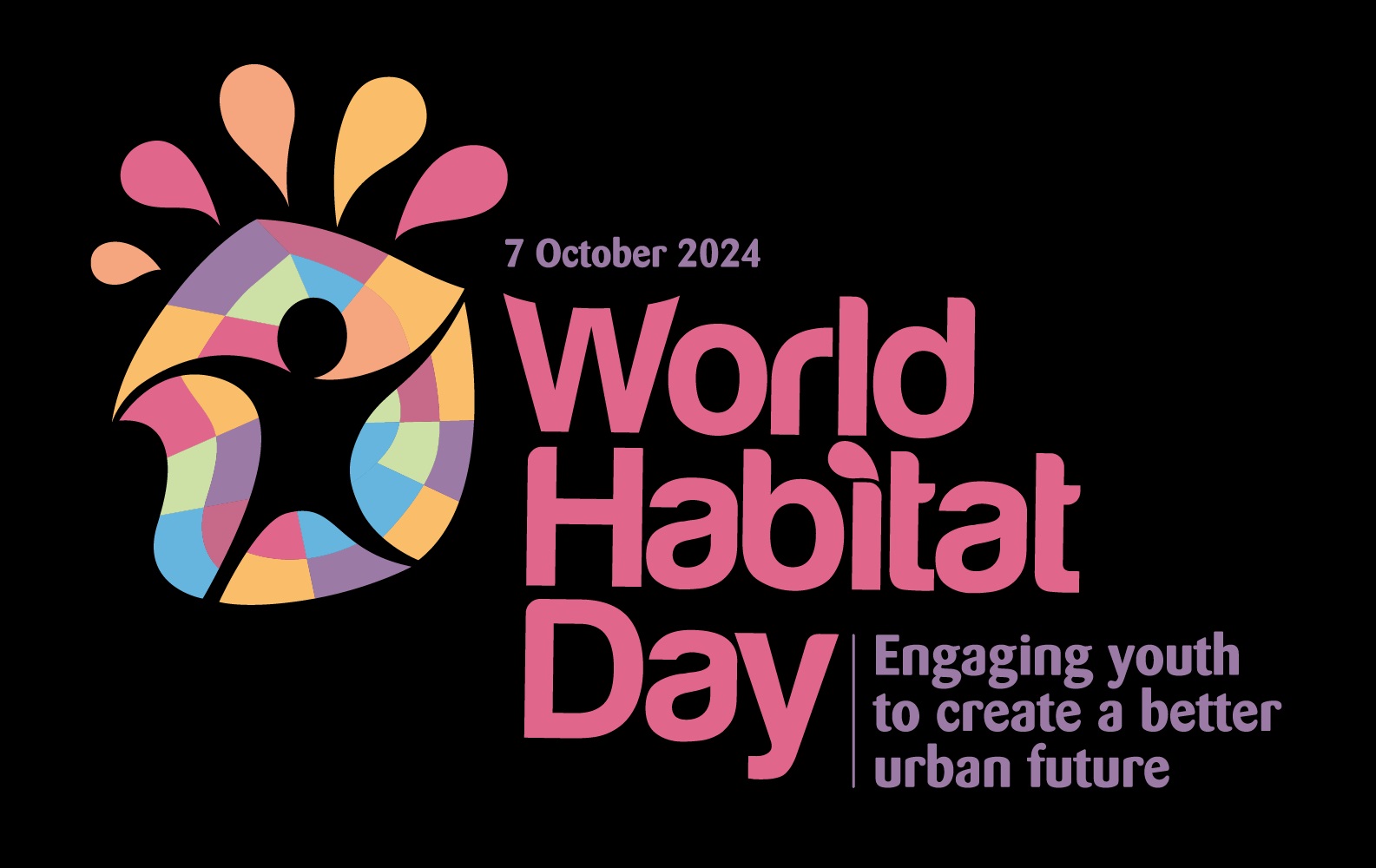Engaging Youth to Create a Better Urban Future: A Call to Action on World Habitat Day

George George Idowu
As the world celebrates World Habitat Day, the spotlight was firmly placed on the importance of sustainable urban development. This annual event, designated by the United Nations, aims to raise awareness about the challenges of urbanization and the right of all too adequate shelter.
This year’s theme, “Engaging Youth to Create a Better Urban Future,” underscores the critical role young people must play in shaping the cities of tomorrow.
It is crystal clear that the world is rapidly urbanizing, with over half of the global population now living in cities. By 2050, this number is projected to rise to nearly 70%. This unprecedented urban growth presents both opportunities and challenges, particularly for the younger generations who will inherit these urban landscapes. From housing affordability and environmental sustainability to equitable access to services, the future of urban living will depend heavily on the decisions we make today and the voices of youth are essential in shaping these decisions.
Young people are often at the forefront of movements for change. They bring fresh perspectives, innovative solutions, and a desire to improve the world around them. In the context of urban development, youth are uniquely positioned to drive forward sustainable practices, advocate for inclusive policies, and push for the transformation of cities into spaces that promote well-being and equality for all.
Despite their potential, young people especially the ones in Nigeria face numerous challenges in urban environments. High youth unemployment, inadequate housing, lack of access to quality education, and limited participation in decision-making processes are just a few of the hurdles that prevent youth from fully contributing to urban development.
Moreover, many young people live in informal settlements or overcrowded conditions, which often lack basic infrastructure and services such as clean water, sanitation, and healthcare. These conditions exacerbate the vulnerability of youth, making it even more difficult for them to break the cycle of poverty and create a better future for themselves and their communities.
For cities to truly benefit from the energy, creativity, and innovation of young people, it is essential to actively engage them in urban planning and decision-making processes. This involves creating opportunities for youth to contribute to the design and implementation of urban policies and projects that directly impact their lives.
Thus, Investing in education, especially in fields like urban planning, architecture, sustainability, and environmental science, is critical. By equipping young people with the skills needed to address the challenges of urbanization, we empower them to take on leadership roles in shaping future citie
Similarly, Governments, NGOs, and urban planners must create spaces where young people can participate meaningfully in discussions and decision-making. Youth councils, advisory boards, and participatory urban design workshops are just a few ways to ensure young voices are heard.
Many young people are already leading initiatives aimed at improving their communities. From urban gardening and green space advocacy to housing cooperatives and social enterprises, youth-led projects can offer innovative solutions to urban challenges. Supporting these initiatives through funding, mentorship, and collaboration can accelerate their impact.
It is important to also note that youth are digital natives, well-versed in using technology to drive social change. Harnessing this expertise, whether through smart city initiatives, tech-driven urban solutions, or social media advocacy, can help shape more sustainable and connected urban environments.
One of the most pressing issues facing cities today is climate change, and young people are at the forefront of the fight for environmental justice. Urban areas are major contributors to greenhouse gas emissions, and how we design and manage cities will have a profound impact on the planet’s future. From advocating for greener public transportation and energy-efficient buildings to pushing for policies that promote clean energy and waste reduction, youth are key players in ensuring that cities become more sustainable.
Many young activists and organizations are already championing the need for cities to adopt climate-resilient strategies. They are advocating for increased green spaces, better waste management systems, and the promotion of renewable energy. Their efforts highlight the importance of integrating climate action into urban planning to create cities that are not only livable but also resilient in the face of future environmental challenges.
Urban development must prioritize inclusivity and ensure that all residents especially marginalized youth have access to housing, education, healthcare, and employment opportunities. As youth populations grow in cities, the pressure to provide affordable housing and services will only increase. By engaging young people in the development of housing policies and urban infrastructure, cities can better address their needs and aspirations.
In many parts of the world, urban youth have already begun to reimagine what inclusive, people-centered cities could look like. They are promoting co-housing projects, public spaces that encourage social interaction, and community-based solutions to housing shortages. Their vision of cities as equitable, vibrant spaces should serve as a guiding principle for future urban development.
Hence, World Habitat Day reminds us that the future of cities lies in the hands of those who will live in them: the youth. By fostering their participation, providing them with the tools to lead, and supporting their initiatives, we can build urban environments that are sustainable, inclusive, and resilient. The path to a better urban future depends on the active engagement of today’s youth, as they are not only the leaders of tomorrow but also the change makers of today.
